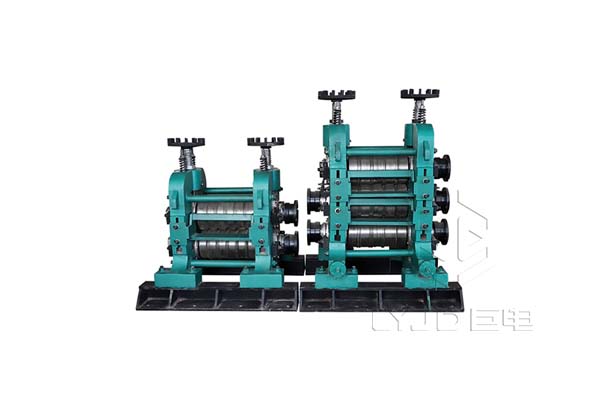A steel bar rolling mill is a facility where steel bars are rolled into different shapes and sizes. The rolling mill consists of multiple stands of rollers that progressively shape the steel as it passes through.

The process of rolling steel bars involves feeding raw material (usually in the form of billets or ingots) into the mill, where it is heated to a high temperature and then passed through a series of rollers. The rollers are arranged in pairs, with each pair exerting increasing pressure on the steel as it passes through.
As the steel passes through the rollers, it is gradually shaped into its final form, which can be a round, square, or hexagonal bar. The finished bars are cut to the desired length and often undergo additional processing, such as heat treatment or surface finishing.
In addition to steel bars, rolling mills can also produce other types of materials, including:
Wire: Rolling mills can produce wire in a variety of shapes and sizes, including round, square, and rectangular wire. The wire is commonly used in the manufacturing of electrical cables, springs, and other products.
Sheet and Plate: Rolling mills can also produce flat sheets and plates of various thicknesses and sizes. Sheets and plates are commonly used in the manufacturing of automotive parts, construction materials, and other products.
Structural Shapes: Rolling mills can produce a variety of structural shapes, such as I-beams, H-beams, and channels. These shapes are commonly used in the construction industry for building structures such as bridges, buildings, and other infrastructure.
Rails: Rolling mills can produce rails for use in the railroad industry. Rails are used to create the tracks on which trains run.
Pipe and Tubing: Rolling mills can produce pipe and tubing in a variety of sizes and shapes. Pipe and tubing are commonly used to manufacture oil and gas pipelines, water pipes, and other applications.
There are several advantages of using a steel bar rolling mill, including:
High-Volume Production: Steel bar rolling mills are designed to produce large quantities of steel bars in a short amount of time. The continuous rolling process allows for high-volume production, making the mill an efficient and cost-effective option for manufacturers.
Customizable Shapes and Sizes: Rolling mills can produce steel bars in a variety of shapes and sizes, including round, square, hexagonal, and more. This allows manufacturers to have custom shapes and sizes to meet their specific needs.
Improved Strength and Durability: The rolling process can improve the strength and durability of steel bars by aligning the grain structure of the metal. This results in steel bars that are stronger and more resistant to bending and deformation.
Cost Efficiency: Rolling mills can produce steel bars at a lower cost compared to other manufacturing processes, due to the high volume production and the ability to recycle scrap metal.
Sustainability: Steel bar rolling mills can be designed to be environmentally sustainable by using recycled steel and implementing energy-efficient practices. This makes rolling mills an eco-friendly option for manufacturers.
The steel bar rolling mill is a versatile and efficient option for manufacturers looking to produce large volumes of steel bars in various shapes and sizes.
Please send us your request and we reply to you with in 24 hours.
Submit Request